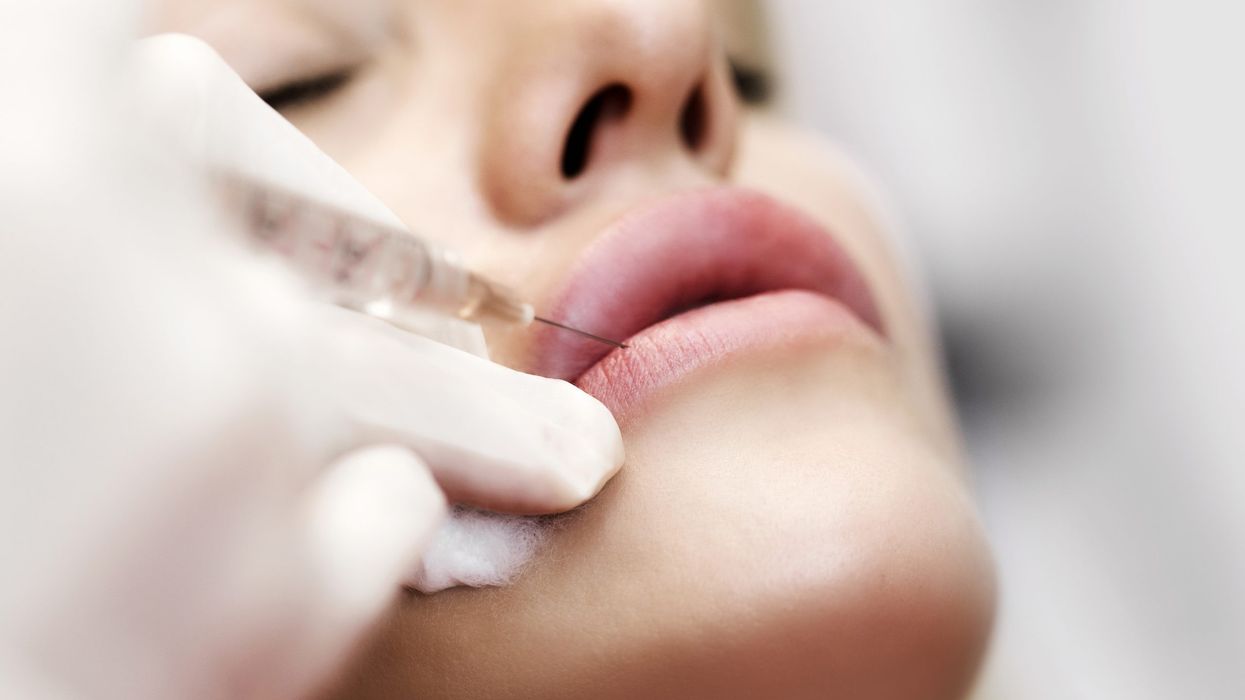With more and more women aspiring to look like celebrities, the popularity of getting fillers has grown exponentially in recent years. This trend has got experts worried and they are concerned that Britons are falling victim to an unregulated cosmetic aesthetic industry that seems to be fostering body dysphoria among those unsatisfied with how they look.
Thousands of people in the UK, mostly young women, get fillers every year. This can cost approximately £200. The procedure involves injections in the face with a substance that is usually hyaluronic acid with the intention of filling out wrinkles or making lips bigger and cheekbones more defined, reports the Daily Mail.
Therefore, in a clampdown on the UK's cowboy cosmetic market, MPs have now demanded that lip fillers should be made prescription-only.
The MPs are also calling for disclaimer logos to be added to images photoshopped by influencers so that social media users who are vulnerable will know they are not real but created through various filters.
The Health and Social Care Committee is reported to have said that the Government is 'not doing enough to understand the scale of the risks' linked to body image dissatisfaction.
It has therefore called for an end to the 'conveyor belt' of non-surgical cosmetic procedures in the UK (for lip-fillers and Botox) by bringing forward a licensing regime. The MPs want a national strategy to deal with body image dissatisfaction, the Daily Mail said.
Chairman of the committee, former health secretary Jeremy Hunt reportedly said, “The Government must act urgently to end the situation where anyone can carry out non-surgical cosmetic procedures, regardless of training or qualifications.
“We heard of some distressing experiences – a conveyor belt approach with procedures carried out with no questions asked, procedures that have gone wrong, the use of filthy premises.
“It was clear throughout our inquiry that some groups are particularly vulnerable to exploitation in this growing market that has gone largely unregulated.
“We need a timetable now for a licensing regime with patient safety at its centre to reduce those risks.”
According to the NHS, the risks of getting fillers depend on whether the procedure was done correctly or what filler was used.
Serious complications include an infection, filler moving away from the intended treatment area, scarring, a lumpy appearance under the skin, and blocked blood vessels in the face, which can cause tissue death or blindness.
The report also calls for more to be done to tackle obesity and to help prevent children from developing body image issues in early life.
Hunt added, “We now think that around 60 percent of 17- to 19-year-olds may have a possible eating disorder, so this is a very dramatic increase over the last couple of decades.
“And social media appears to be one of the causes — we call for some research to be done so that we can properly understand that.
“But, at the very minimum, when commercial companies photoshop images to make people more thin than they would be in real life, we think that should be labelled – we think people looking at those images should know this is not a real human being.
“And that's part of the way that we can help people use social media with more awareness, (to know) some of the tricks of the trade if you like, and therefore stop this ever-focus on our bodies, which is so damaging for so many young people, particularly young women.
"I think the social media landscape is in need of an overhaul in areas like this, particularly when it affects young people."
Additionally, Tom Quinn, director of external affairs at eating disorder charity Beat, is reported to have said, “We welcome the Health and Social Care Committee's proposal to ensure digitally altered images are clearly marked.
“Whilst viewing irresponsible advertising or social media images would not be the sole cause of an eating disorder developing, the pressure to conform to a particular body shape or size can have an incredibly detrimental effect on self-esteem and wellbeing, particularly in younger people.”
Commenting on the current circumstances with regard to body image dissatisfaction and unregulated cosmetic surgical procedures in the UK, a Government spokesman is quoted as saying, “We know the devastating impact issues around body image can have on a person's mental and physical health, and we are continuing to take steps to support those affected.
“As part of our ongoing effort, we will be introducing a national licensing scheme to help prevent exploitation, improve safety and ensure individuals are making informed and safe choices about non-surgical cosmetic procedures.
“This will build on the existing support we have put in place, from expanding mental health services — including for those with body dysmorphic disorder — with an additional £2.3billion a year by 2024, to changing the law preventing under-18s accessing Botox and filler treatments for cosmetic purposes.”
The NHS explains that body dysmorphia (BDD) is a mental health condition whereby a person spends a lot of time worrying about flaws in their appearance often unnoticeable to others. BDD is most common in teenagers and young adults and can affect both women and men.
Symptoms of BDD include:
• Looking in the mirror a lot or completely avoiding mirrors
• Worrying about one particular area of your body (usually your face)
• Try your best to conceal flaws and taking a long time to comb your hair, choose your clothes or apply makeup.
• Trying to make your skin ‘smooth’ by picking at it
• Comparing your looks with other people’s looks and spend a lot of time doing this
BDD can seriously affect one’s daily life, including work, social life, and relationships. BDD can also lead to depression, self-harm, and even thoughts of suicide. So, visit your GP if you think you might have BDD.













